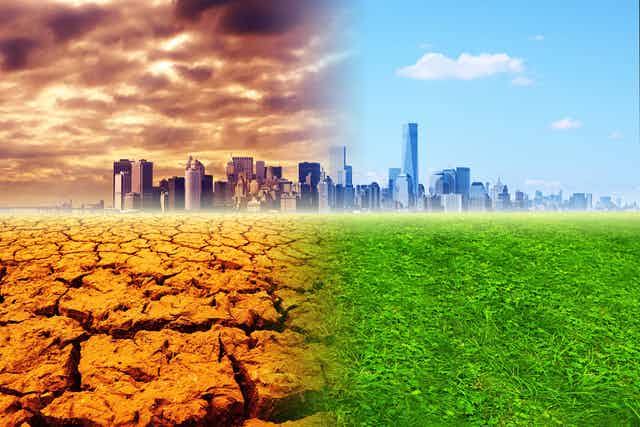Power Shift Africa, an environment thinktank has released a new report on how African countries are being forced to spend billions of dollars yearly to cope with the effects of the climate crisis, which is diverting potential investment from schools and hospitals as well as worsening poverty.
It stated that dealing with extreme weather is costing close to 6 per cent of Gross Domestic Product (GDP) in Ethiopia alone, equating to a spend of more than $1 repairing climate damage for every $20 of national income, according to research by the thinktank Power Shift Africa.
The warning came after the major new scientific report from the global authority on climate science, the Inter-governmental Panel on Climate Change (IPCC).
This report, the second part of the IPCC’s comprehensive summary of global climate science, will set out the consequences of climate breakdown across the world, looking at the floods, droughts, heat-waves and storms that are affecting food systems, water supplies and infrastructure.
As global temperatures have risen in recent decades, and as the impact of extreme weather has become more apparent around the world, efforts to make infrastructure and communities more resilient have been stalled.
Africa will be one of the worst hit regions, despite having done least to cause the climate crisis. According to the Power Shift Africa study, titled: Adapt or Die: An analysis of African climate adaptation strategies, African countries will spend an average of four per cent of GDP on adapting to climate breakdown.
These countries include some of the world’s poorest people, whose responsibility for greenhouse gas emissions is many times less than those of people in developed countries, or in large emerging economies such as China. Sierra Leone will have to spend $90m a year on adapting to the climate crisis, though its citizens are responsible for about 0.2 tonnes of carbon dioxide emissions a year each, while U.S. citizens generate about 80 times more.
Director of Power Shift Africa Adow, said: “This report showed the deep injustice of the climate emergency. Some of the poorest countries in the world are having to use scarce resources to adapt to a crisis not of their making. Despite only having tiny carbon footprints compared with those of the rich world, these African countries are suffering from droughts, storms and floods which are putting already stretched public finances under strain and limiting their ability to tackle other problems.”
He called for more funding from developed countries, promised at the Cop26 UN climate summit to double the money available to help poor countries adapt to the climate crisis.
Rich countries promised in 2009 to provide $100bn a year to help poor countries cut their greenhouse gas emissions and cope with the effects of climate breakdown.
The study examined national adaptation plans submitted to the UN by seven African countries: Ethiopia, Kenya, Liberia, Sierra Leone, South Africa, South Sudan and Togo. South Sudan, which is the world’s second poorest country was hit by floods last year that displaced 850,000 people, and led to outbreaks of water-borne diseases. The country is to spend $376 million a year on adaptation, about 3.1 per cent of its GDP.
The Director, Centre for climate change and development at the Alex Ekwueme Federal University in Nigeria, Chukwumerije Okereke, said rich countries must respond to the findings and to the IPCC report.

